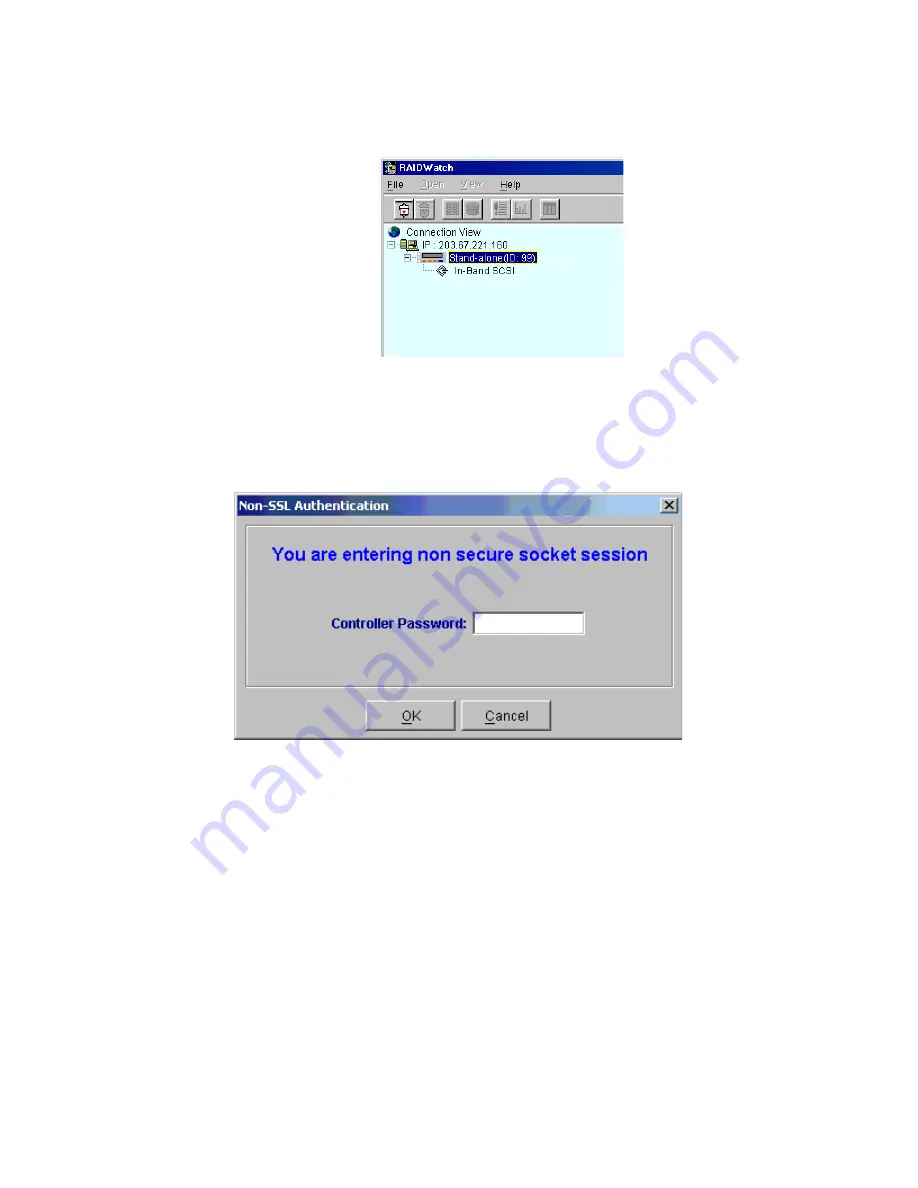
Operation
51
3
You will be prompted for a password to access the controller. Enter the password (there is no
default password) and click OK. The connection is successful when the RAID View Introduction
window appears and the tool bar buttons are activated.
4.3.2 Connecting to a RAID System from a Distant Host
1
In the screen shown in Figure 4–4, select the IP address of the RAID you would like to monitor or
manage from the Connection View list. Choose and double click on an IP address. Double click the
controller icon for that IP address. Choose and double click the connection method (e.g., In-Band
SCSI).
Figure 4–2
Click the connection Method, e.g. In-Band SCSI
Figure 4–3
Enter Password
Summary of Contents for Altos RAIDWatch
Page 1: ...Isssue 2 0 1 May 2004 ...
Page 8: ...viii ...
Page 13: ...Preface xiii ...
Page 14: ...Altos RAIDWatch User Guide xiv ...
Page 44: ...Altos RAIDWatch User Guide 30 ...
Page 60: ...Altos RAIDWatch User Guide 46 ...
Page 84: ...Altos RAIDWatch User Guide 70 ...
Page 88: ...Altos RAIDWatch User Guide 74 ...
Page 98: ...Altos RAIDWatch User Guide 84 ...
Page 148: ...Altos RAIDWatch User Guide 134 ...
Page 158: ...Altos RAIDWatch User Guide 144 ...
Page 169: ...The NPC 155 2 Two levels Warning and Alert 3 Only the most serious events Alert messages ...
Page 170: ...Altos RAIDWatch User Guide 156 ...
Page 186: ...Altos RAIDWatch User Guide 172 ...
Page 196: ...Altos RAIDWatch User Guide 182 ...
Page 202: ...Altos RAIDWatch User Guide 188 ...
Page 206: ...Altos RAIDWatch User Guide 192 ...
Page 212: ...6 ...






























